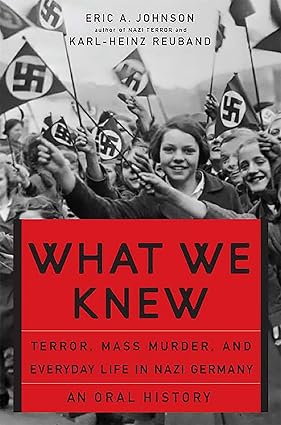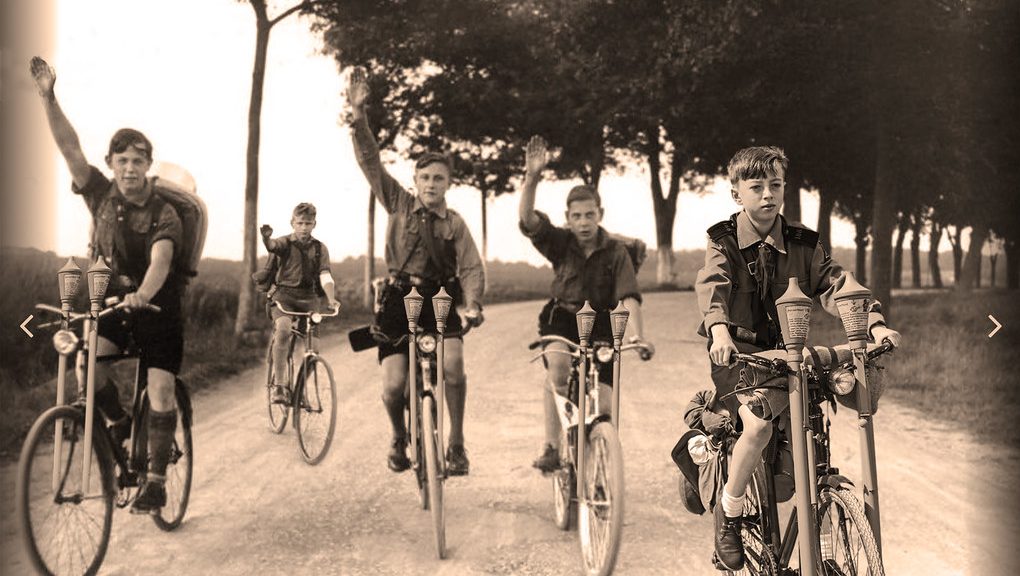Book Review: What We Knew: Terror, Mass Murder, and Everyday Life in Nazi Germany by Eric A. Johnson and Karl-Heinz Reuband examines how ordinary people in Germany experienced and responded to the policies and actions of the Nazi regime. The book focuses on key questions about public awareness and attitudes during this period, such as:
- How much did average Germans know about the Holocaust?
- Was Hitler popular among ordinary citizens?
- Did people comply primarily out of fear, or because they supported the regime’s goals?

Johnson, an American historian, and Reuband, a German sociologist, conducted a study that combines oral history with statistical research. Instead of relying solely on archival documents, they interviewed thousands of Germans—both Jewish and non-Jewish—who lived through the Third Reich. Their approach provides both quantitative data and personal narratives, offering insight into daily life under Nazi rule.
Survey results and interviews suggest that many Germans were aware of mass killings of Jews, Roma, Slavs, Poles, Catholics, homosexuals, criminals, and disabled adults and children. Some respondents acknowledged knowledge of concentration camps while they were operating. Despite this, many continued with ordinary life—working, raising families, and supporting military efforts. Still, others were
The book also explores the role of fear versus ideology. While fear of the Gestapo was present, the data indicates that widespread arrests among ordinary citizens were relatively rare. Many respondents described a sense of loyalty rooted in confidence in Hitler’s leadership, particularly during times of economic recovery and national resurgence.
Jewish respondents in the study describe experiences of isolation and loss as relationships with neighbors and friends changed over time. Their testimonies recount the gradual implementation of restrictions, acts of betrayal, and the difficulty of leaving Germany once persecution intensified. These narratives provide a personal perspective on events that are often described through official records.
What We Knew combines firsthand accounts with systematic analysis to explore how knowledge, belief, and daily life intersected during one of history’s most violent regimes. It offers an in-depth examination of attitudes within Nazi Germany and how individuals understood and responded to unfolding events.
This book pushes readers to examine human nature, to see how easy it is for good people to look away—or worse, to cheer—when evil is done in their name. In an age of rising authoritarianism and fascist ideology, the lessons of What We Knew couldn’t be more urgent.





